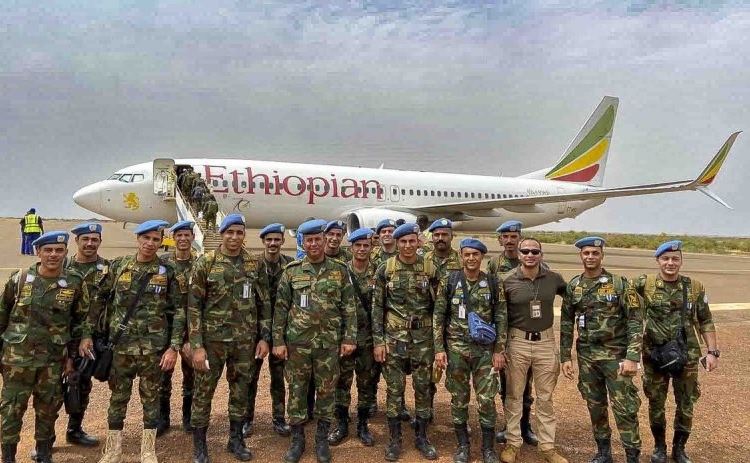In a significant development, over 460 peacekeepers hailing from the Egyptian combat and convoy escort battalion of MINUSMA (United Nations Multidimensional Integrated Stabilization Mission in Mali) bid farewell to the city of Gao, located in northern Mali, on Friday, July 28.
This moment marked the conclusion of their commendable mission, which spanned over a year and encompassed various challenging tasks.
Throughout their tenure, these peacekeepers carried out convoy escorts from Gao to Tessalit, navigating the intricate routes that took them through Kidal and Aguelhok. Their journey was fraught with peril as they encountered an increased threat from improvised explosive devices employed by armed terrorist groups operating in the region.
Their missions, executed with unwavering commitment, played a pivotal role in securing logistical convoys and safeguarding civilians in a volatile environment. Beyond their core responsibilities, the Egyptian Blue Helmets engaged in a multitude of civil-military activities.
These endeavors included distributing essential supplies such as food and school materials, providing thousands of items to those in need, and offering free medical consultations to assist the most vulnerable members of the local population.
It’s noteworthy that the departure of the Egyptian peacekeepers had been planned well in advance of the adoption of UN Security Council Resolution 2690, which marked a significant turning point for MINUSMA.
This resolution outlined the conclusion of the mission, aligning with the overarching goal of achieving Mali’s definitive withdrawal. In the coming days, peacekeepers from Senegal, Burkina Faso, Ivory Coast, and Bangladesh contingents are also set to depart Mali as peripheral camps in Ogossagou, Goundam, Ber, and Menaka are shuttered. These actions are integral to the comprehensive troop withdrawal slated for completion by December.
The recent call for the withdrawal of the UN peacekeeping mission by Mali’s Foreign Minister highlights the perceived limitations of MINUSMA and the strained relationship between Mali’s military rulers and the international community.
The imposition of operational restrictions on peacekeepers by Mali’s military leaders and the rupture of Mali’s longstanding alliance with former colonial power France underscore the challenges faced by the mission.
France, which had maintained a significant presence in Mali for over a decade, withdrew its troops in August 2022, citing disputes over Malian airspace violations and the presence of Russian mercenaries linked to the Wagner Group.
Similarly, Germany suspended its operations and commenced a withdrawal after Mali denied flyover rights to Berlin’s airborne forces.
The ongoing withdrawal process of the United Nations Mission in Mali (MINUSMA) aligns with the request made by Malian authorities for the mission to exit by December 31 of this year. This intricate process involves the redeployment of peacekeepers and essential equipment, alongside the formal handover of established camps to Malian civilian authorities.
Notably, MINUSMA has successfully closed three camps at Ogossagou, Ber, and Goundam, marking substantial progress in its withdrawal plan while adhering to UN protocols and regulations. This transition signifies a pivotal moment in the evolving landscape of peacekeeping efforts in Mali.


